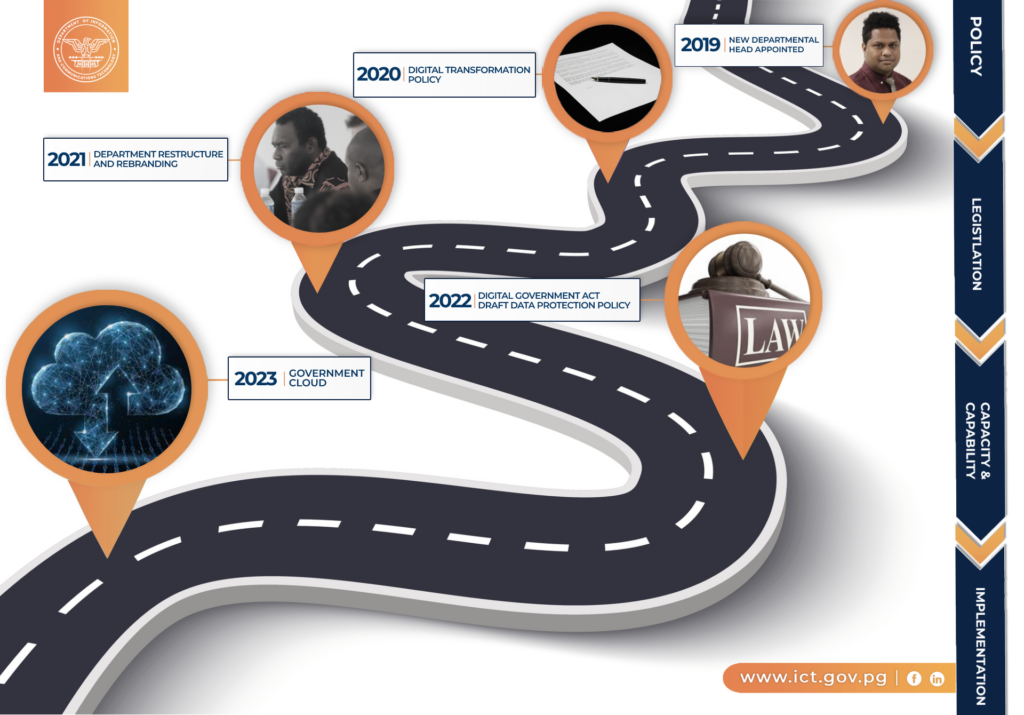
The Department of Information and Communications Technology (DICT) has been on an ambitious digital transformation journey, following the appointment of the new Secretary, Mr. Steven Matainaho, leading the department into a new era of digitalization.
His appointment signaled a commitment to driving change and innovation within the government, which in 2020, a significant milestone was reached with the approval of the Digital Transformation Policy. This policy laid the foundation for a comprehensive strategy that would guide the department’s efforts in embracing digital technologies and streamlining government processes.
Recognizing the need to enhance capacity and capability, the DICT undergo a departmental restructure and rebranding initiative in 2021. This move was aimed to bolster the department’s workforce with the much needed innovative workforce, equipped with the necessary skills, and ensured that they were ready to take on the challenges of the digital age.
In 2022, the Digital Government Act was enacted, solidifying the legal framework for the government’s digital initiatives. Additionally, a Draft Data Governance and Protection Policy was developed to ensure the secure and responsible handling of data in the digital ecosystem.
The year 2023 marked a significant milestone with the establishment of the Government Cloud framework and piloted a leased cloud infrastructure designed to meet the unique requirements of the government. This cloud infrastructure would serve as a reliable and secure platform for hosting government systems and services while ensuring it developed the relevant policy through a two-year comprehensive consultation process to ensure the approach it took the best fits the sovereign interest of the country whilst mitigating all its security risks.
With the foundational stack, and standards and security framework in place, the DICT has now entered the implementation stage of its digital transformation journey. The focus has shifted towards developing the technology stack and translating it into tangible digital services for the public.
Among the key initiatives in progress is the establishment of a secure data exchange and interoperability platform. This platform will enable seamless information sharing and collaboration between government agencies, fostering a more integrated and efficient governance system.
Furthermore, an e-portal is being developed to provide a centralized access point for various government services. This portal will simplify the user experience and enhance convenience for citizens interacting with the government.
Another critical component is the implementation of a Digital ID Block, which will enable reliable and secure digital identity verification utilizing existing ID systems and building trust around those different ID Sets and unifying how these sources validate users and citizens. This will lay the foundation for the seamless delivery of personalized and secure digital services to citizens.
Additionally, efforts are underway to establish a robust registration system block and a secure payment gateway block. These components will be established on a government-sanctioned cloud infrastructure that meets all those capabilities and meets all global security standards to ensure maximum security and protection of data and the effectiveness of the digital platform itself. This will facilitate for efficient and secure transactions for citizens accessing government services online.
As the DICT’s digital transformation journey progresses, the focus remains on harnessing technology to improve service delivery, enhance government operations, and empower citizens. The department is committed to building a digitally inclusive society where citizens can access government services conveniently and securely, contributing to the nation’s overall progress.


